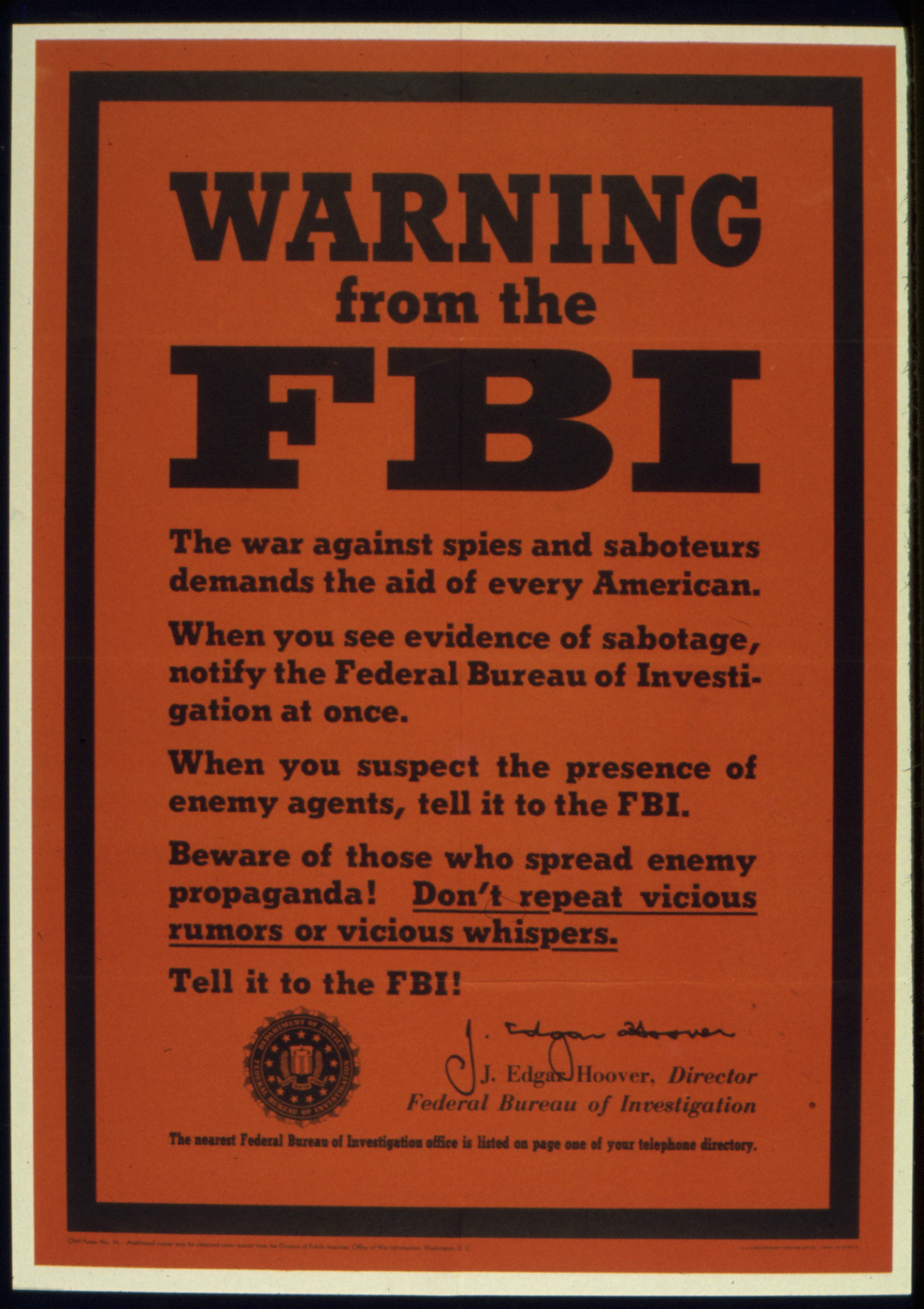When Congress established the draft in late 1940, the FBI was responsible for tracking down evaders and dissenters of the draft. Then in June 1941, when the Germans attacked Russia, the FBI focused internal security efforts on potentially dangerous Germans, Italians, and Japanese. In addition to this, the FBI collected intelligence throughout the US. The FBI's staff cooperated with various other professions in order to allowthe US to sometimes control the flow of information from the belligerents in the Western Hemisphere, giving them a huge advantage.

Another important duty of the FBI during the war was sabotage investigations. After Operation Pastorius, the German sabotage attempt on American soil, and the susccessful investigation by the FBI leading to the capture of the eight men sent by Germany, the American people truly trusted the agency tasked with protecting them.
Following the bombing of Peral Harbor, FBI Headquarters and the 54 field offices were placed on 24-hour schedules and many previously identified aliens were arrested in the following days as threats to national security. The total number of FBI employees rose from 7,400 to over 13,000 by the end of 1943.

Despite all the concern over the war, the FBI maintained a solid amount of civil rights investigations, including segregation. Additionally, the FBI had one contingent of agents, the SIS, in charge of monitoring and destroying any Axis activities in South America. Another aspect of the FBI that was not related to the war effort was the FBI Disaster Squad, who identified various disasters such as a plane crash involving FBA agents.
By establishing precedents for the limits of the FBI, the war greatly expanded the power of the FBI and transformed the organization permanently. The increase in employees and various powers granted to them during the war effort both allowed the FBI to evolve beyond what it had ever been before, and much of the basis of today's FBI can be credited to this time.
Source:
https://www2.fbi.gov/libref/historic/history/worldwar.htm
This is very interesting and engaging you wouldn't think of the all the things FBI agents do and that a lot. We heard a lot about American spies and its interesting to know that there were German spies as well. I really enjoy mystery and knowing how there were people who actually got into solving mysteries is quite cool. Was there any stories of how they destroyed any Axis activities in Africa ? how did they distinguished an enemy German/ Japanese vs. civilians Germans and Japanese?
ReplyDelete